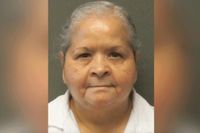Yolanda Saldívar, who is serving a life sentence for the murder of iconic Tejano singer Selena Quintanilla, is poised for potential early release, as the Texas Board of Pardons and Parole reviews her case. With a decision expected by March 30, 2025, Saldívar's release would mark a significant moment for many affected by the tragic events surrounding Selena's untimely death.
The murder of Selena, often regarded as the 'Queen of Tejano music,' shocked fans across Latin America and the United States. Born on April 16, 1971, in Lake Jackson, Texas, Selena Quintanilla was gunned down by Saldívar, a former friend and president of her fan club, on March 31, 1995. Saldívar, now 64, has spent nearly three decades behind bars since her conviction for first-degree murder in 1995, a verdict that underscored the violent culmination of a troubling professional relationship. She was imprisoned after being found guilty of intentionally shooting Selena with a .38 caliber revolver during an argument over financial mismanagement related to a boutique that Selena owned.
Initially, Saldívar maintained that the shooting was an accident, claiming that Selena had confronted her aggressively. However, witnesses at the trial refuted her claim, leading to her conviction. In recent reports, Saldívar's family stated that she has expressed regret over the incident and has allegedly admitted that the shooting was intentional. This acknowledgment, whether genuine or a tactical maneuver to influence the parole board's decision, adds complexity to an already fraught situation.
Reports indicate that Saldívar's case is currently under analysis by the Texas Board of Pardons and Parole, which will render its decision within the specified timeframe. If granted parole, Saldívar will need to post bail before her release becomes official. Over the years, Yolanda has reportedly exhausted all legal avenues for early release but has now been given her first opportunity to apply for parole due to having served 30 years of her life sentence.
The Texas Board has undertaken a thorough examination of her case. They will consider not only the original crime and its ramifications but also Saldívar’s behavior while incarcerated and expressions of remorse. Her family claimed in an interview with The New York Post that Saldívar knows that what she did was wrong, and they emphasized that she was reacting to the way Selena confronted her during the fatal encounter.
Interestingly, family members of Saldívar assert that the dispute escalated to a point where she felt cornered and acted out of panic, suggesting a narrative of provocation that seeks to shift some blame onto Selena. This viewpoint remains contentious and raises ethical questions about accountability and the complexities of interpersonal relationships gone awry.
The legacy of Selena remains vibrant in the music industry and popular culture, underscoring the profound impact of her life and career. With merchandise, tribute shows, and documentaries, Selena's memory endures, and many fans remain adamantly opposed to the idea of Saldívar receiving parole. Selena's family has consistently expressed their firm opposition to any potential release, feeling that such a move would undermine the gravity of her crime.
One of Selena's sisters has been vocal about her opposition to Saldívar's potential release, stating that ‘the world lost an angel the day Selena died, and Yolanda's release would compound the injustice that has already been done.’ The emotional scars from Selena’s murder continue to affect her family and fans alike.
The possible release of Saldívar has ignited heated discussions surrounding issues of justice, remorse, and whether a perpetrator can genuinely be rehabilitated after such a grievous offense. People are grappling with questions regarding the efficacy of the criminal justice system and what it means for victims and their families when an offender seeks parole after decades.
The upcoming decision by the Texas Board of Pardons and Parole, set for March 30, will have significant ramifications not only for Saldívar but for all those who feel the emotional weight of this tragedy. As the clock ticks down to the parole hearing, many will be watching closely to see how the board balances considerations of justice, remorse, and public sentiment in their ultimate decision.







